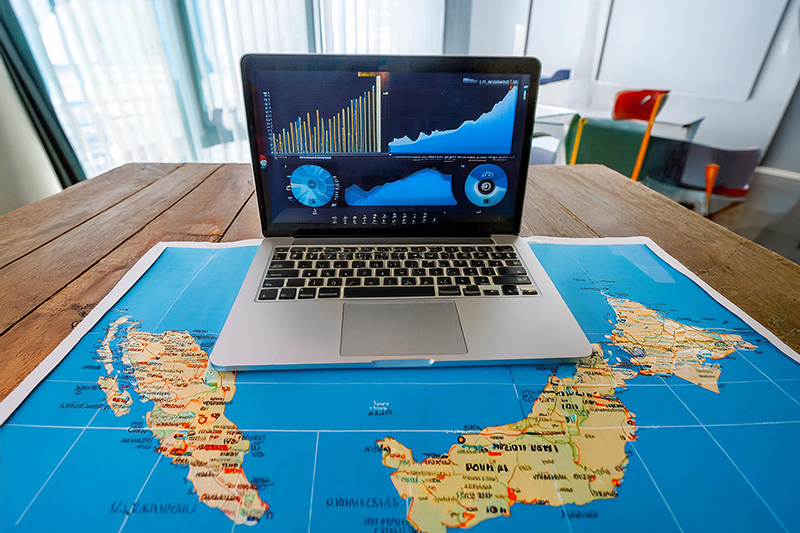In today’s fast-paced business world, competition is fierce and the demand for advanced business software solutions is at an all-time high. Companies are continually searching for ways to optimize their operations, and one tool that has gained immense popularity and importance is the Enterprise Resource Planning (ERP) system. ERP systems are transforming businesses across various industries, and in this blog, we will delve into the significant benefits and features of ERP systems, with a special focus on their impact in Malaysia.
The Significance of Business Software
Business software plays a crucial role in driving productivity and efficiency within organizations. With advancements in technology, businesses in Malaysia have turned to ERP systems to consolidate their diverse operations into a single unified platform. This consolidation not only cuts costs but also enhances workflow and decision-making processes.
- Centralized Data ManagementIn any business, data management is a critical aspect. At its core, an ERP system acts as a centralized database, unifying all departments and their respective data. This eliminates the need for separate business software applications for different departments. In Malaysia, businesses have felt the pressing need to move away from outdated systems that hinder their growth potential. An ERP system serves as a single source of truth, ensuring accurate, real-time data accessible to all stakeholders.
- Enhanced Reporting and AnalyticsERP systems come with robust reporting and analytics capabilities. Businesses in Malaysia leverage these features to gain insightful analytics and generate comprehensive reports. This goes beyond mere data collection; the business software embedded in ERP systems analyzes data trends and provides actionable insights. This has proven invaluable for strategic planning and forecasting.
- Streamlined OperationsOne of the key benefits of ERP systems is the streamlining of business processes. Traditional business software often operates in silos, creating bottlenecks and inefficiencies. In contrast, an ERP system seamlessly integrates various business functions such as finance, human resources, supply chain, and customer relationship management. This integration ensures that operations flow smoothly from one department to another, which is particularly beneficial for the dynamic business environment in Malaysia.
Adopting ERP Systems in Malaysia
Malaysia, being a growing business hub, demands efficiency and innovation. Local businesses have increasingly adopted ERP systems to remain competitive and compliant with international standards. Key sectors such as finance, manufacturing, retail, and healthcare have seen the numerous advantages offered by ERP systems.
- Regulatory ComplianceERP systems help businesses comply with Malaysian regulations and standards. The customizable nature of ERP business software ensures that companies can adapt quickly to changing regulatory requirements. This is especially important given Malaysia’s stringent business regulations.
- Scalability and FlexibilityAs businesses in Malaysia grow, so do their needs. ERP systems are scalable, supporting businesses whether they are small startups or large enterprises. The business software can be tailored to meet the specific needs of different industries while also being flexible enough to adapt to future changes and expansion.
- Competitive AdvantageBy implementing an ERP system, businesses in Malaysia gain a competitive edge. The level of automation and efficiency achieved through ERP systems enables faster response times to market changes, improved customer satisfaction, and better resource management. This allows businesses to focus on innovation and strategic objectives rather than being bogged down by operational inefficiencies.
The Financial Perspective
The financial sector in Malaysia, in particular, has seen significant value through ERP systems. Financial institutions require robust business software to manage vast amounts of data accurately and securely. ERP systems ensure that financial transactions are processed efficiently, compliance is maintained, and reporting standards are met. This is crucial for maintaining trust and transparency with stakeholders.
Technological Integration
With Malaysia being at the forefront of technology adoption, local businesses are not just looking for any business software; they seek smart solutions. ERP systems integrate with emerging technologies like Artificial Intelligence (AI), Machine Learning (ML), and the Internet of Things (IoT). This integration allows businesses to stay ahead of tech trends, offering more advanced, data-driven decision-making capabilities.
What is Multiable M18 ERP System?
To conclude, let’s turn the spotlight to a standout example of ERP systems: the Multiable M18 ERP system. The Multiable M18 ERP system is a cutting-edge business software designed to meet the diverse needs of businesses in Malaysia. It is known for its comprehensive suite of modules that cover everything from human resources to finance, supply chain management, and customer relationships. The M18 ERP system stands out with its user-friendly interface, scalability, and robust analytics. Moreover, its customization options make it an ideal fit for businesses of all sizes in Malaysia, allowing them to optimize their operations and achieve greater business efficiency.
Contact us
